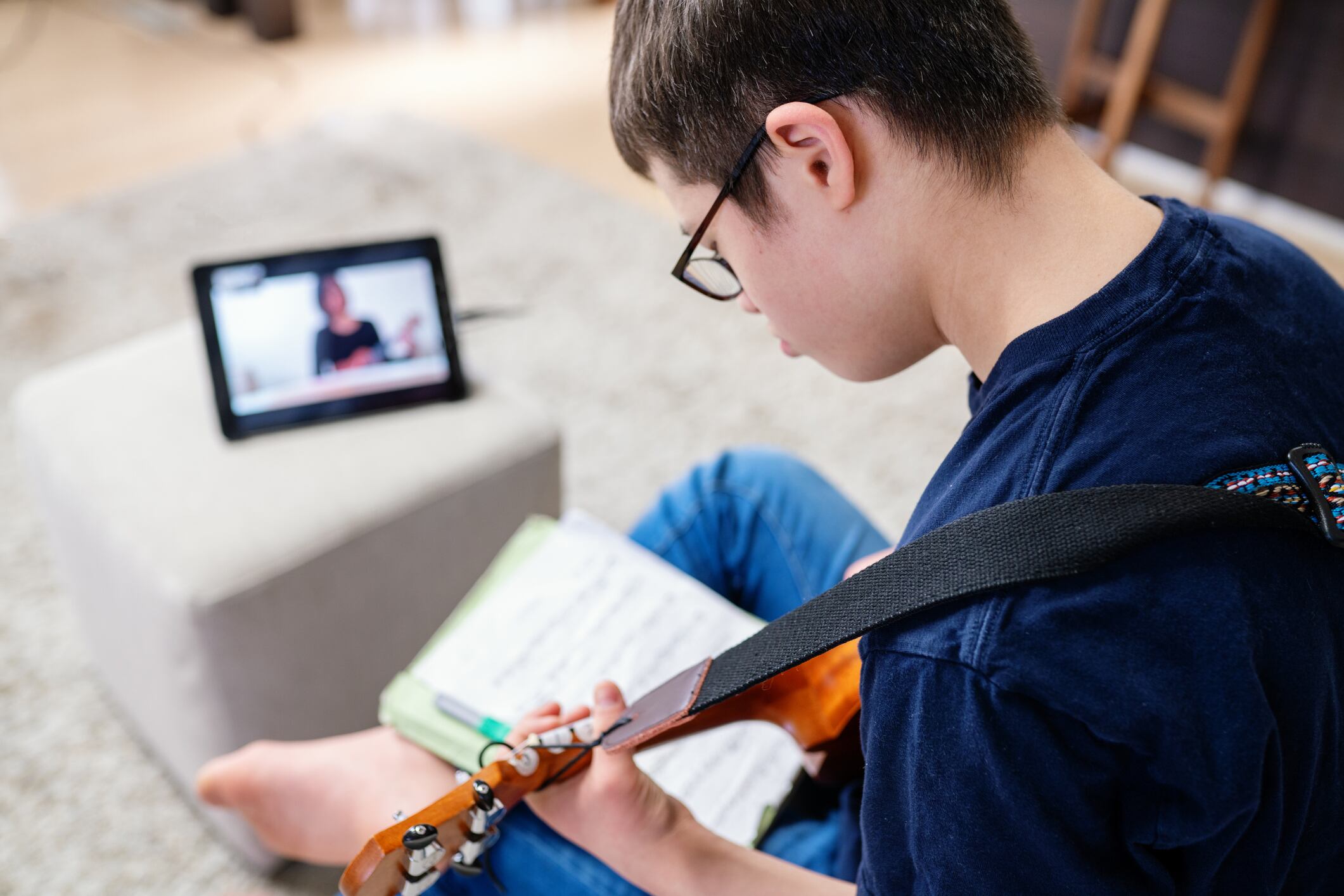With coronavirus restrictions closing her preschool, Heather Debby’s 4-year-old daughter, Margaret, lost therapy with the speech language pathologist who was teaching her new words and how to speak clearly. Instead, the Chicago family received lesson plans for a month that they struggled to deliver while waiting for Chicago Public Schools to approve teletherapy.
“The frustrating part was the lack of communication from the district and the lack of reasoning around why they wouldn’t allow it,” Debby said.
Parents and therapists say that the mid-March school closures cut off children from speech language pathologists, occupational therapists, and physical therapists that special education law requires. Parents like Debby said their children need those essential services to succeed in school.
School therapists in Chicago and elsewhere in Illinois said they have struggled to figure out how to provide therapy ethically while adhering to often vague guidance from federal, state and local officials.
Operating without a playbook and with long lists of children waiting for their services, they worry about risking their licenses and not meeting the needs of the children who desperately need them.
Across the country, approaches to therapy have differed not only state by state, but between school districts and even among schools, said Jaumeiko Coleman of the American Speech Language Hearing Association.
“Some schools decided to take time and train their service providers and educators; others worked hard to get funds to buy the technology necessary,” she said. “Others decided to just stop providing services all together because of fear of not meeting the demands of the federal government.”
Chicago Public Schools did not respond to a specific list of provider and parent concerns shared by Chalkbeat. Instead, a spokesperson sent Chalkbeat a FAQ document from May 8 that said service providers may provide group teletherapy and that they would be shielded from liability during remote learning.
In Chicago Public Schools, special education students have participated in remote learning at lower rates than their peers, according to data from the week of May 11. One-third of special-education students did not log it at all.
Like many educators, occupational therapist Luke Boyd-Small struggled to reach his students. He has 60 in four schools on Chicago’s South and Southeast Side.
All come from financially struggling families, many without access to the internet or phone.
“Ten percent of my students’ parents’ phones are turned off. I can’t get a hold of them, they’re in the wind,” he said.” These children will be unable to access the curriculum through no fault of their own.”
The challenge extends beyond just reaching students. Across town, Renee Natale wondered how she could provide therapy to her 55 students in North Side schools because she couldn’t guarantee that it would remain confidential — as required by patient-protection law and her profession as a speech language pathologist — at a home with family around. She said she received only vague instructions from the school district on providing teletherapy.
She has managed to conduct some teletherapy, but in individual sessions, rather than the groups she held at schools. That has greatly increased her workload.
But being unable to meet with all her students, even virtually, has her worried and heartbroken, especially for the younger ones.
“There are some opportune times when children acquire language more readily and more rapidly,” like when they are young, Natale said. “This is really delaying their ability to make the most progress.”
But for young children, teletherapy has limitations.
“For students who have more complex needs, we are hearing that telepractice doesn’t seem to be the best mechanism. What is likely more helpful is if there is someone there who can be a facilitator for them with the telepractice,” Coleman said.
That’s what Carly Smith, a speech language pathologist at a small school district in northern Illinois has found. She struggles to engage students who have moderate to severe autism or cognitive disabilities.
“Their ability to stay engaged in a video format, and even set it up and show up on time was difficult,” she said. So she’s ended up meeting students with their parents, who then facilitate therapy. Of the 45 students she serves in Huntley Community School District 158, she estimates that she’s successfully conducted teletherapy with three.
Prior to schools closing she would provide therapy for students in group settings to practice peer modeling and see her students multiple times throughout the week.
Whatever the reason for the lapses in service, parents worry that the lag in getting therapy will result in a loss of skills. In Chicago, Jessica Burtnett’s 8-year-old son, Jack, went more than a month without therapy to help cope with severe disabilities. She saw him regress, struggling to say words with “th” and other sounds, while losing his confidence to write.
“Not only has it impacted his abilities in writing but, most importantly, his willingness to write. He sees himself as being behind and that makes him less likely to attempt it,” Burnett said. “Without speech therapy, it is really affecting his ability to formulate the sounds for words which has made reading more difficult.”
With Chicago planning on hosting summer school remotely and some distance learning a possibility in the fall, families and therapists hope that this summer Chicago Public Schools provides more detailed guidance for therapists, devices for students, and communication with parents.
“I hope that CPS will talk to clinicians, special education teachers, and teachers in general on the ground, to see what resources will best support our students and those that will allow us to do our job,” Natale said. “So that if we are in this situation when school starts in September, we’ll be ready to hit the ground running.”






